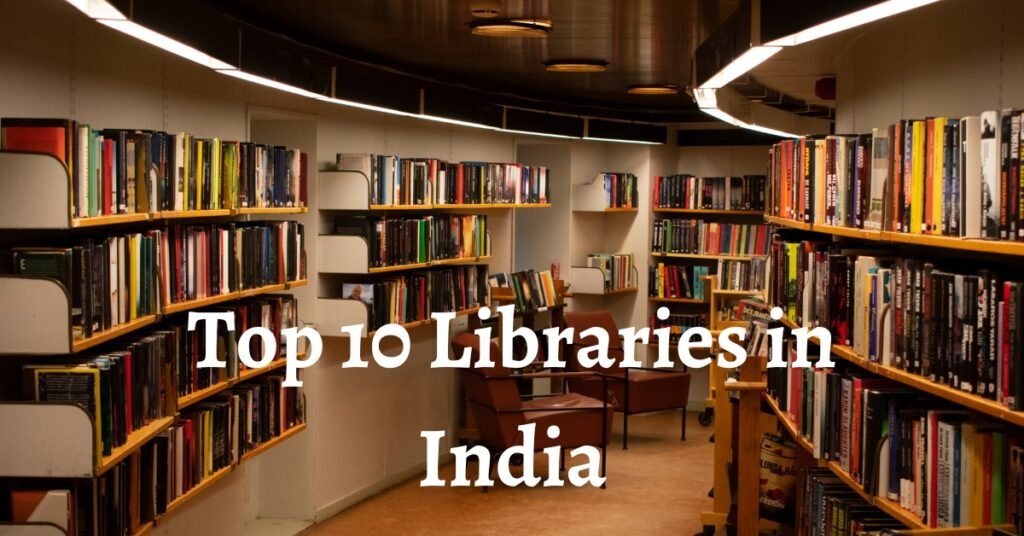
India, a land with a rich historical and cultural heritage, is home to some of the most magnificent libraries in the world. These repositories of knowledge span centuries and house vast collections of manuscripts, books, and other literary treasures. Here’s a detailed look at the top 10 libraries in India that every bibliophile should visit.
1. National Library of India, Kolkata

The National Library of India in Kolkata is the largest library in India, housing a vast collection of over 2.2 million books, 86,000 maps, and rare manuscripts. It serves as a key repository of knowledge under the Ministry of Culture, offering digital access to its extensive collection.
| Overview | Largest library in India, under Ministry of Culture |
|---|---|
| Location | Kolkata |
| Collections | 2.2 million books, 86,000 maps, rare manuscripts |
| Highlights | Precious manuscripts, digital access |
| Visitor Information | Open to the public, special rooms for scholars |
Overview:
Located in Belvedere Estate, Alipore, Kolkata, the National Library of India is the largest library in the country. It is a repository of information and functions under the Ministry of Culture, Government of India.
Collections:
The library boasts a collection of over 2.2 million books and 86,000 maps. It also houses rare manuscripts, periodicals, and newspapers in multiple languages.
Highlights:
- Manuscripts: Contains precious manuscripts in Persian, Sanskrit, and other languages.
- Digital Access: Offers digital access to many rare documents and books.
Visitor Information:
Open to the public, the library also provides special reading rooms for scholars and researchers.
2. Delhi Public Library, New Delhi
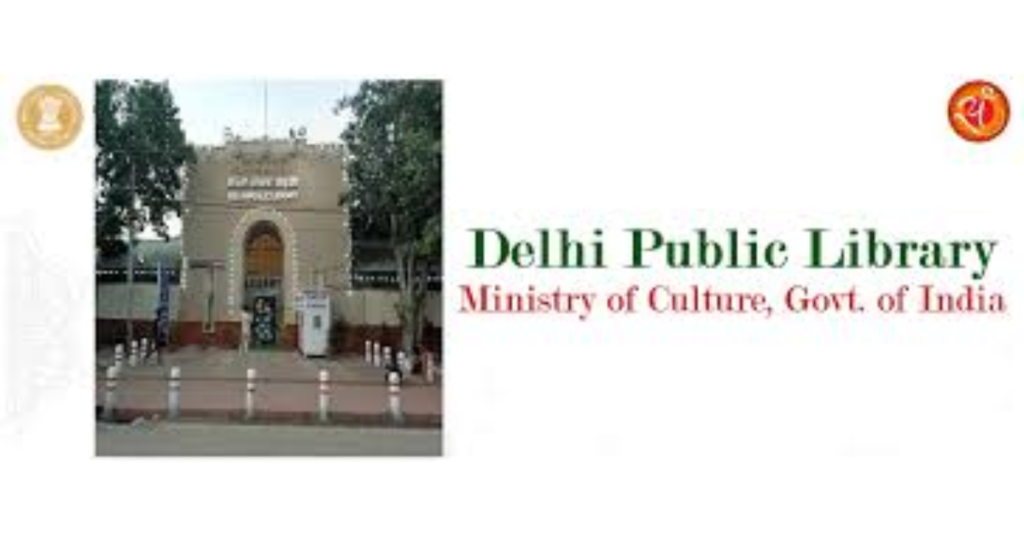
Established in 1951 with UNESCO assistance, the Delhi Public Library is a significant library network in New Delhi. It houses 1.8 million books across various branches, including extensive collections of fiction, non-fiction, and reference materials. It also offers mobile library services and has a dedicated section for children.
| Overview | Established in 1951 with UNESCO assistance |
|---|---|
| Location | New Delhi |
| Collections | 1.8 million books, fiction, non-fiction, reference materials |
| Highlights | Children’s section, mobile library services |
| Visitor Information | Open to public, membership for borrowing |
Overview:
Established in 1951 by the Government of India with assistance from UNESCO, the Delhi Public Library is a national depository library.
Collections:
It houses over 1.8 million books and offers a diverse range of reading materials, including fiction, non-fiction, and reference books.
Highlights:
- Children’s Section: A special section dedicated to young readers with a vast collection of children’s literature.
- Mobile Library Services: Extends its reach to various parts of the city through mobile library vans.
Visitor Information:
Open to the public with membership options available for borrowing books.
3. Saraswathi Mahal Library, Thanjavur

One of Asia’s oldest libraries, the Saraswathi Mahal Library is located within the Thanjavur Palace complex. It preserves over 49,000 manuscripts, including palm leaf manuscripts and rare books in multiple languages. It’s renowned for its collection of historical documents and ancient texts.
| Overview | Oldest library in Asia, part of Thanjavur Palace |
|---|---|
| Location | Thanjavur, Tamil Nadu |
| Collections | 49,000 manuscripts, palm leaf manuscripts, rare books |
| Highlights | Palm leaf manuscripts, historical documents |
| Visitor Information | Open to visitors, access to manuscripts with permission |
Overview:
One of the oldest libraries in Asia, the Saraswathi Mahal Library is located within the Thanjavur Palace. It was established during the Nayak period and expanded by the Maratha kings.
Collections:
The library holds over 49,000 manuscripts, many of which are on palm leaves, and 4,500 rare books.
Highlights:
- Palm Leaf Manuscripts: Home to ancient palm leaf manuscripts in Tamil, Sanskrit, Marathi, and Telugu.
- Historical Documents: Includes rare medical texts, treatises on art and culture, and ancient maps.
Visitor Information:
The library is open to visitors, and scholars can access the manuscripts with special permission.
4. Asiatic Society Library, Mumbai
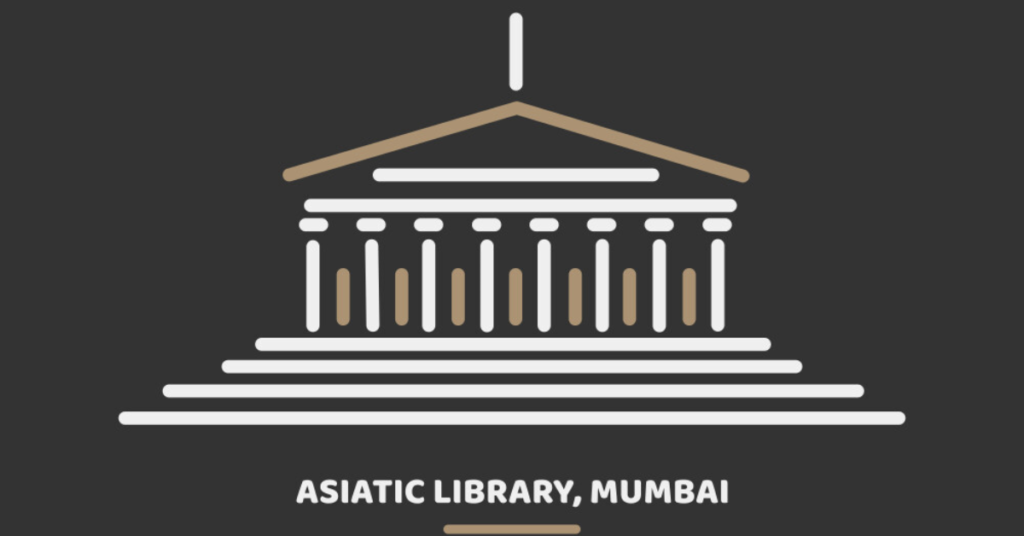
Founded in 1804, the Asiatic Society Library in Mumbai is housed in a colonial-era building. It boasts a collection of over 100,000 books, 3,000 rare manuscripts, and ancient coins. The library is notable for its James Wales Collection and extensive holdings in Sanskrit, Prakrit, and Pali texts.
| Overview | Founded in 1804, colonial building |
|---|---|
| Location | Mumbai |
| Collections | 100,000+ books, 3,000+ manuscripts, ancient coins |
| Highlights | James Wales Collection, ancient texts |
| Visitor Information | Open to public, membership for reading rooms |
Overview:
Founded in 1804, the Asiatic Society of Mumbai Library is housed in a majestic colonial building. It is one of the oldest public libraries in the city.
Collections:
The library has a collection of over 100,000 books, 3,000 rare manuscripts, and ancient coins.
Highlights:
- James Wales Collection: Includes rare sketches and manuscripts by the Scottish artist.
- Ancient Texts: Houses manuscripts in Sanskrit, Prakrit, and Pali.
Visitor Information:
Open to the public with membership options for accessing the reading rooms.
5. Anna Centenary Library, Chennai

Inaugurated in 2010, the Anna Centenary Library in Chennai is one of Asia’s largest libraries. It houses over 1.2 million books, with a special focus on Tamil literature. The library features a children’s section, digital access to e-books, and offers facilities such as study rooms and conference halls.
| Overview | Inaugurated in 2010, one of Asia’s largest libraries |
|---|---|
| Location | Chennai, Tamil Nadu |
| Collections | 1.2 million books, Tamil literature |
| Highlights | Children’s section, digital library |
| Visitor Information | Open to public, study rooms and conference halls |
Overview:
Inaugurated in 2010, the Anna Centenary Library in Chennai is one of the largest libraries in Asia. It is named after C. N. Annadurai, former Chief Minister of Tamil Nadu.
Collections:
The library has over 1.2 million books, including a vast collection of Tamil literature.
Highlights:
- Children’s Section: A dedicated space for children with a wide array of books and educational toys.
- Digital Library: Provides access to a vast collection of e-books and digital resources.
Visitor Information:
Open to the public with various facilities including study rooms and conference halls.
6. State Central Library, Thiruvananthapuram

Established in 1829, the State Central Library in Thiruvananthapuram is one of India’s oldest public libraries. It holds a collection of over 600,000 books and numerous rare manuscripts. The library provides access to digital resources and serves as a hub for scholarly research and public reading.
| Overview | Established in 1829, one of India’s oldest libraries |
|---|---|
| Location | Thiruvananthapuram, Kerala |
| Collections | 600,000+ books, rare manuscripts |
| Highlights | Rare books, digital resources |
| Visitor Information | Open to public, membership for borrowing |
Overview:
Also known as the Trivandrum Public Library, it was established in 1829 and is one of the oldest public libraries in India.
Collections:
The library boasts a collection of over 600,000 books and numerous rare manuscripts.
Highlights:
- Rare Books: Contains rare publications and first editions of significant works.
- Digital Resources: Offers a digital library with access to numerous online journals and books.
Visitor Information:
Open to the public with membership options for book borrowing.
7. Rampur Raza Library, Rampur
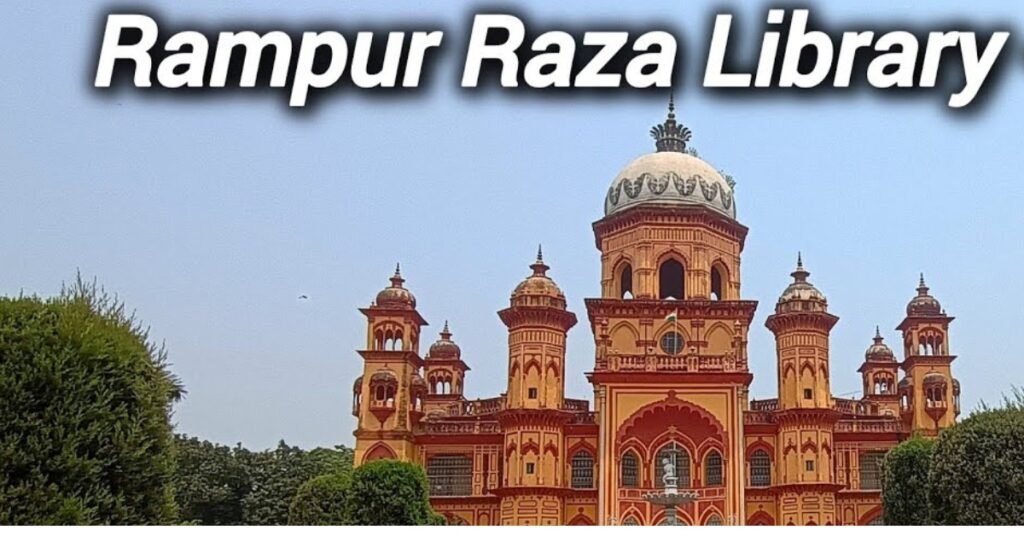
Founded in 1774, the Rampur Raza Library in Uttar Pradesh is a repository of Indo-Islamic cultural heritage. It houses over 17,000 manuscripts, including Mughal miniatures and rare Islamic manuscripts. The library is known for its exquisite collections and historical significance.
| Overview | Founded in 1774, repository of Indo-Islamic cultural heritage |
|---|---|
| Location | Rampur, Uttar Pradesh |
| Collections | 17,000+ manuscripts, Mughal miniatures, Islamic manuscripts |
| Highlights | Mughal miniatures, Islamic manuscripts |
| Visitor Information | Open to scholars and researchers with permission |
Overview:
Founded by Nawab Faizullah Khan in 1774, the Rampur Raza Library is a repository of Indo-Islamic cultural heritage.
Collections:
The library holds over 17,000 manuscripts, 205 palm leaf manuscripts, and around 60,000 printed books.
Highlights:
- Mughal Miniatures: Houses an exquisite collection of Mughal miniature paintings.
- Islamic Manuscripts: Contains rare Islamic manuscripts, including calligraphy and illustrated texts.
Visitor Information:
Open to scholars and researchers with special permission required for accessing rare manuscripts.
8. Connemara Public Library, Chennai
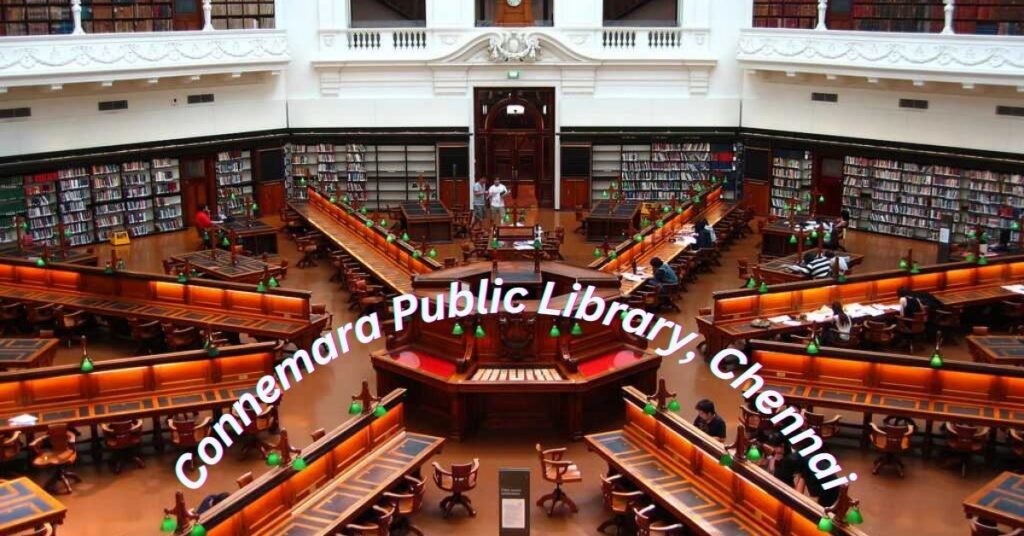
Established in 1896, the Connemara Public Library in Chennai is housed in a heritage colonial-era building. It serves as a depository library for the United Nations and holds a vast collection of books, periodicals, and government publications. The library is renowned for its reference section and cultural events
| Overview | Established in 1896, colonial-era building |
|---|---|
| Location | Chennai, Tamil Nadu |
| Collections | Vast collection of books, periodicals, government publications |
| Highlights | Reference section, heritage building |
| Visitor Information | Open to public, various reading rooms and study spaces |
Overview:
Established in 1896, the Connemara Public Library is a depository library for the United Nations.
Collections:
It has a vast collection of books, periodicals, and government publications.
Highlights:
- Reference Section: Offers an extensive reference section with a rich collection of encyclopedias and academic journals.
- Heritage Building: The library is housed in a beautiful colonial-era building.
Visitor Information:
Open to the public with various reading rooms and study spaces available.
9. Khuda Bakhsh Oriental Public Library, Patna

Established in 1891, the Khuda Bakhsh Oriental Public Library in Patna is dedicated to preserving Arabic and Persian literature. It houses over 21,000 manuscripts and 250,000 printed books, including rare Persian manuscripts and Arabic texts. The library is a significant center for Oriental studies in India.
| Overview | Established in 1891 by Khan Bahadur Khuda Bakhsh |
|---|---|
| Location | Patna, Bihar |
| Collections | 21,000+ manuscripts, 250,000+ printed books |
| Highlights | Persian manuscripts, Arabic literature |
| Visitor Information | Open to scholars and researchers with access to rare items |
Overview:
Established in 1891 by Khan Bahadur Khuda Bakhsh, this library is a treasure trove of Arabic and Persian literature.
Collections:
The library has over 21,000 manuscripts and 250,000 printed books.
Highlights:
- Persian Manuscripts: Houses rare Persian manuscripts, including illustrated works.
- Arabic Literature: Contains a significant collection of Arabic texts and treatises.
Visitor Information:
Open to scholars and researchers with special access to rare manuscripts.
10. David Sassoon Library, Mumbai

Founded in 1847 and located in Mumbai’s Fort area, the David Sassoon Library is one of the city’s oldest libraries. It houses a collection of over 70,000 books, including rare volumes and first editions. The library is renowned for its Gothic architecture and hosts various literary events and cultural programs.
| Overview | Founded in 1847, located in Mumbai’s Fort area |
|---|---|
| Location | Mumbai |
| Collections | 70,000+ books, rare volumes, first editions |
| Highlights | Gothic architecture, literary events |
| Visitor Information | Open to public, membership for lending section |
Overview:
Founded in 1847, the David Sassoon Library is one of Mumbai’s oldest libraries. It is located in the Fort area of the city.
Collections:
The library has a collection of over 70,000 books, including rare volumes and first editions.
Highlights:
- Architectural Beauty: The library building is a heritage structure with beautiful Gothic architecture.
- Literary Events: Hosts various literary events, book readings, and cultural programs.
FAQs and answer for Top 10 Libraries in India
1. What services do libraries typically offer?
Libraries typically offer a range of services including book borrowing, reference assistance, computer and internet access, study spaces, printing and photocopying facilities, and often host events such as author talks and workshops.
2. How can I borrow books from a library?
To borrow books from a library, you usually need to become a member by filling out a membership form and providing identification. Membership is often free or involves a nominal fee. Once registered, you can borrow books for a specified period, typically ranging from a few days to a few weeks.
3. Can I access e-books and digital resources from libraries?
Many libraries now offer access to e-books, audiobooks, digital magazines, and other online resources through their websites or dedicated digital library platforms. Some may require you to log in with your library membership details to access these resources remotely.
4. How do I find specific books or materials in a library?
Libraries organize their collections using cataloging systems such as Dewey Decimal Classification or Library of Congress Classification. You can search for specific books or materials using the library’s online catalog, which allows you to search by title, author, subject, or keyword.
5. Are libraries open to the public?
Yes, most libraries are open to the public, although specific access policies may vary. Public libraries typically welcome everyone to browse books, use study spaces, and access certain resources. Academic and specialized libraries may have restricted access to members, students, or researchers.
6. Can I study or work at a library?
Libraries often provide quiet study areas, reading rooms, and sometimes group study rooms where you can study or work on academic or personal projects. They offer a conducive environment with access to reference materials and sometimes offer Wi-Fi and computer facilities.
7. How can libraries help with research?
Libraries provide access to a wide range of scholarly and academic resources, including books, journals, databases, and archival materials. Librarians are trained to assist with research inquiries, help navigate databases, and provide guidance on finding relevant resources for research projects.
8. Are there special collections or rare books in libraries?
Many libraries house special collections containing rare books, manuscripts, archival materials, and artifacts of historical or cultural significance. These collections are often preserved for scholarly research and may require special permission to access due to their fragile nature.
9. What are some benefits of using a library?
Using a library offers numerous benefits, including access to a vast array of books and resources, opportunities for lifelong learning, community engagement through events and programs, free or low-cost access to books and materials, and a quiet space for study or reflection.
10. How can I support my local library?
You can support your local library by becoming a member, volunteering your time or skills, attending library events, donating books or funds, advocating for library services, and spreading awareness about the importance of libraries in the community.
These libraries are not just repositories of books but are also cultural and historical landmarks. They offer a glimpse into India’s rich literary heritage and are invaluable resources for scholars, researchers, and book lovers alike. Whether you are seeking rare manuscripts or simply wish to immerse yourself in the serene environment of a library, these institutions provide the perfect setting for a literary pilgrimage.
Last Updated on Sunday, July 7, 2024 2:18 am by Delhi News Wire Team